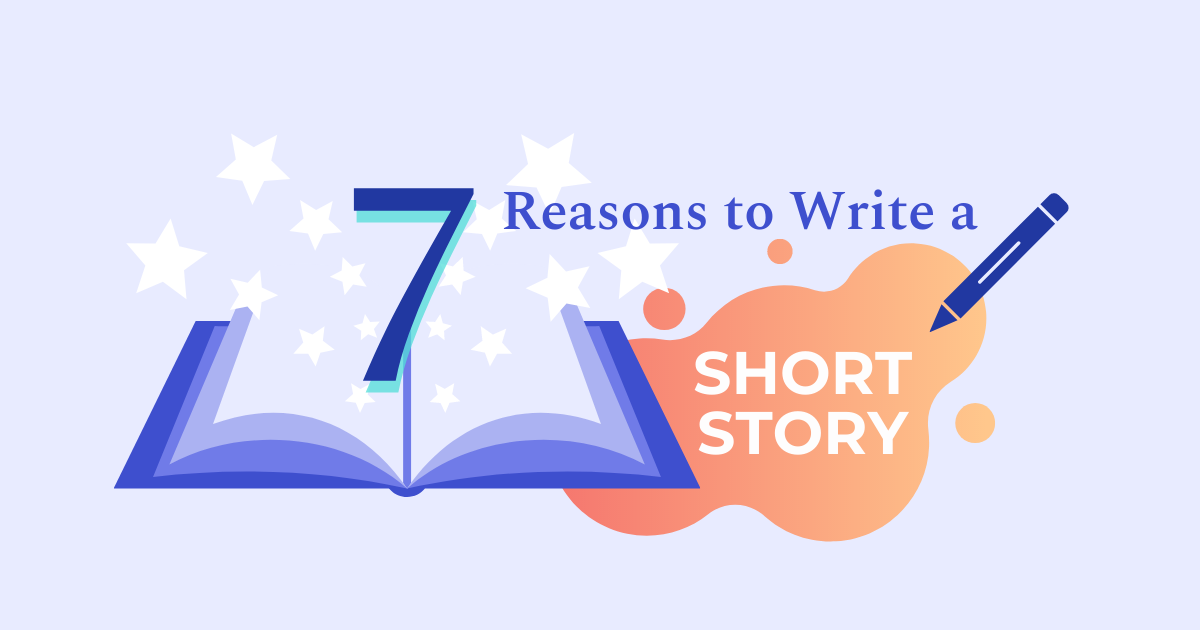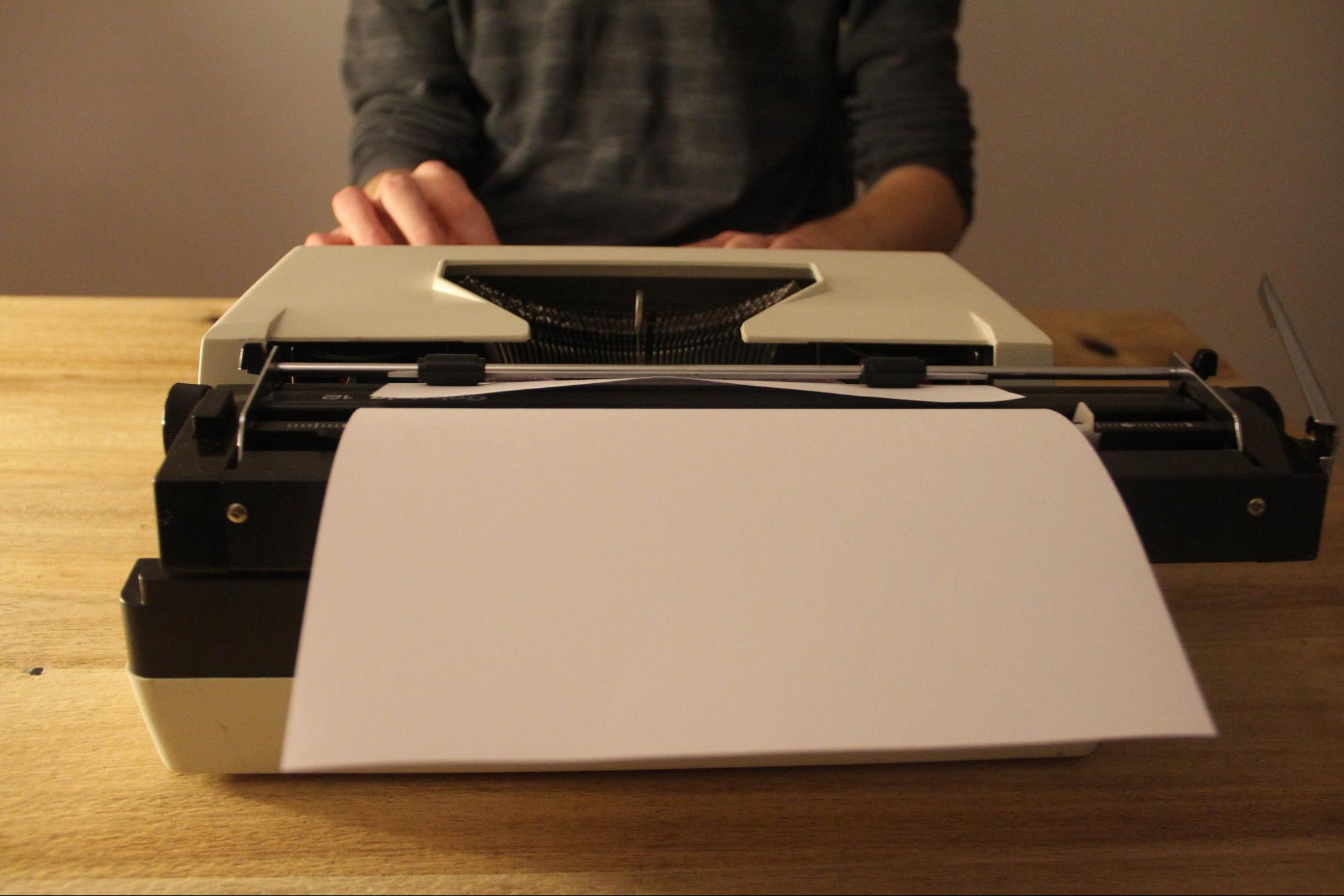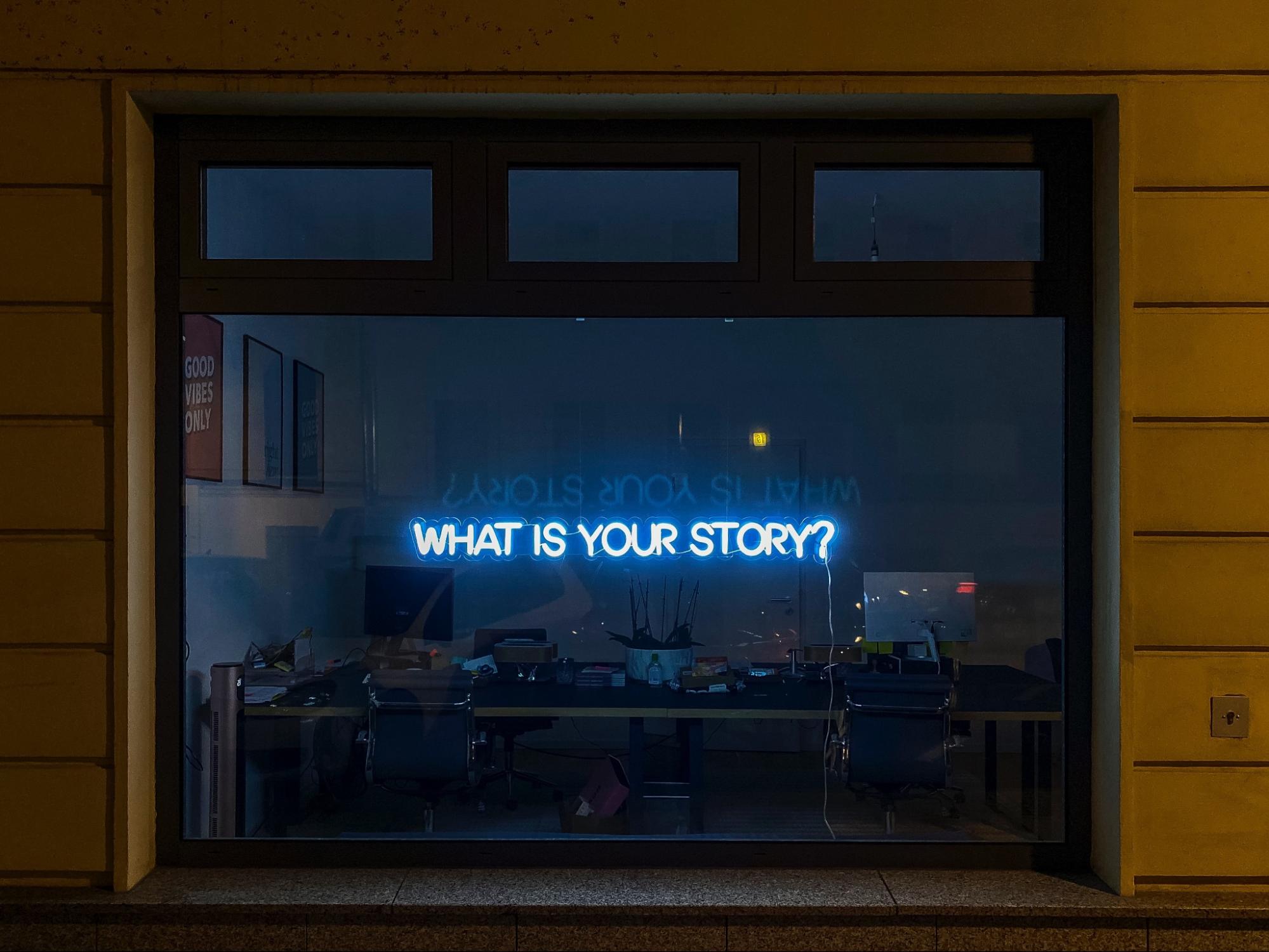7 Reasons to Write a Short Story [Marketing Tips Included]

Whenever I begin another short story collection, I remember my first encounter with the genre. Short stories are an acquired taste, and it took me some time to appreciate such small gems.
I was used to reading novels and spending a considerable amount of time waiting to reach a conclusion in the character development or plot to find some inner peace (that I never knew I needed until starting the book in the first place).
Fast forward some years and here I am sharing why authors should consider writing short stories and publishing them.
Why Short Stories Are Great Literature Pieces
1. Short stories are pills of condensed narration
Short story writing is not a diminished form of literature. Whenever I think of short stories, the first image that comes to mind is that of strong essences kept in tiny bottles or universes with the power to sweep the reader off their feet in a limited number of pages.
A whole world unfolds, lives crash into each other and yours, a whole velocity of being in motion and then, abruptly, a few pages away, a resolution. Your mind and heart are sucked into a story without many intricacies compared to a novel but not without a novel’s depth and power.
2. Short stories are excellent character builders
Characters in short stories have incredible strength. Their development is fast-paced, and if it serves the story's development, sometimes their previous life events are brought into the narrative by the stream of consciousness.
If you are writing a short story, it can be your chance to build a strong narrative around a character. And as they develop, your storyline can build up into something else.
3. Short stories bring variety under the same roof
Nothing tickles my voracious appetite for diversity like a short story collection. It is like moving up and down a block of flats; each apartment has its own story to tell.
Neighbors have nothing in common; you run from floor to floor with an insatiable curiosity, and then suddenly, happiness awaits around the corner. Delight in small doses , just enough to take what you need between chores.
If there is an apartment you do not like, you carry on in your journey. No hard feelings; there are so many others waiting to meet.
4. Short stories are great incentives for authors
As an author, once you have succeeded in condensing a whole universe into a few pages, you are hooked on writing. Short story ideas are no different from those for a novel; you are molding a universe in your mind and populating it with characters that connect in various ways. They have distinct personalities and backstories, and such a setup is enough to get you going.
Writing short stories is a great way to practice writing skills. Short stories may be a confidence booster for authors that need help to start a new project, are facing writer's block, or still need to find their voice, and a novel looks intimidating at this stage.
You can challenge yourself to start a short story and publish it.
This brings us to:
How to Start a Short Story: Steps to Take from Ideation to Creation
Here’s a quick walk-through of the process.

1. Pick an idea and stick to it
Keep it brief; you do not want to overdo it. This is a short story, so your storyline usually starts amid conflict. You can design a storyboard to make it easier to follow the plot and the characters and to keep up with the premises for this literary genre.
2. Write out your storyline
You don't need to be too specific, but you still fully own your story development. Take this ride and make it worthwhile. Design your storyboard to be true to your initial idea and to build conflict and resolution. Have a clear plan before starting your writing process. There is room for improvement or change, but still, your narration should have enough tension to keep the reader going.
3. Build your characters
Give your characters personality and essence, and make them suitable for your story and vision. Remember, brevity is not synonymous with underdeveloped characters. Actions and traits may be few, but less can also be more.
4. Publish your short story/collection of stories
While you’re writing, you can search for places to post short stories and even consider entering writing competitions that offer awardees the possibility to publish short stories.
If you have a collection of short stories ready for publication, consider self-publishing.
Why Authors Should Write a Short Story
Short stories are an incredible gift to any reader. They can also benefit an author's career. If you are an author and have an open ear, let me walk you through a few reasons you should write a short story.

1. Test out a plotline
Are you an aspiring novelist dreaming of writing that next bestseller? Writing a novel may be challenging and draining for first-time authors, but if you want to see how your audience reacts to your idea, a short story can be the best way to present it. Test out your vision, your storyline, and your mastering of setup in short story format.
2. Bring forward a new character
Let’s say there is this character you want to prospect, and you want to know if your character is viable, likable, and can stand the test of an outside read. A short story is ideal for putting this all to the test. You can also consider spin-offs regarding plot development and the impact of specific personas. Have fun experimenting; we may all like a John in your story, but perhaps a Richard is looming behind.
3. Exercise your craft
You have been aspiring to write a novel ever since you can remember. You never felt short stories fit you, but you have started to feel a bit out of practice. Writing short stories are perfect for this scenario.
You can exercise your writing skills even if you never publish your short stories. Instead, you can channel them toward building up your audience. Set up a lead magnet on your author website and give your short stories in exchange for your readers' email addresses. This way, you can build an audience willing to buy your next book. And you can get feedback from them that will help you with your future writing.
4. Become more visible
Are you striving to achieve attention over a novel you have been meaning to pitch or self-publish? A short story might be the right material to pave your way to success. If you fear you may not reach your intended audience, short stories are an excellent way to gain exposure with the right crowd. There may even be a writing contest that can land you a publishing deal.
5. Build your portfolio
Sometimes you need to be pragmatic. If you're pursuing a novelist career, having short stories published in literary magazines can ease the process of getting known by a larger audience.
It may not even be the work of your lifetime, but it helps to see your name inside the covers. And editors and publishers will understand that you mean business.
6. Do backlog cleansing
Once you finish writing a novel, you need to get your book in its final shape, which means editing it to perfection. But sometimes, you can be too connected to the writing process to proceed. In this case, the best thing to do is to gain some distance. Put your editing on hold, and try to write something else, like a short story. It will feel liberating to focus on something else and help you return to your previous work with a fresh pair of eyes.
7. Follow film frenzy
If the thought of achieving fame is what it takes to get you to write, you should know that film directors and actors are avid readers of short stories. These tiny works are much easier to adapt to the big screen than novels. It may seem inconsequential, but aiming to grab the attention of those in the movie industry isn't a bad plan. Your short stories could even inspire award-winning films.
How to Make the Most of Your Short Story
Your short story is your chance to increase authorship and boost sales and audience connections. So let's find a few ways to use your short stories in marketing.
1. Great hooks in getting discovered
Short stories are an excellent way of getting noticed. You can set up a blog to publish and collect these short stories. Build a community around your writing (themes, topic, process, ideas) and stir meaningful conversation with your readers. This is a great hook for keeping them engaged and an excellent way to get referrals.
Say you are a novelist, and some of your readers would have preferred some of your characters to develop differently. This is a fantastic opportunity to take their idea for a spin in a short fiction format. See how this agrees with their vision.
This whole blog posting idea can be regarded as a postmodernist take on serial novels. Like in the 19th century, when readers had their own preferred conflict resolution. You can create multiple takes while remembering your marketing goal: get noticed and consolidate your audience.
2. Great hooks in setting up a lead magnet

Your short story can be a great marketing piece. You can offer it to your readers to lead them back to you. Make it a free read and turn it into a lead magnet, which you can link to your author's website, social profiles, or blog, and get readers who appreciate your writing (or have just discovered you) to learn more about you.
Free short stories are a great way to hook your readers; they are short enough to read in any format and to keep them interested. Plus, this tactic works because they know what they get in exchange for their email addresses.
If you are interested in setting up a lead magnet, let's see what you can do:
- Automate the process of sending out the short story every time someone signs up for your newsletter.
Do this with Mail Chimp, SendinBlue, or Book Funnel. Reader magnets are a tool indies use to give bonus content to their subscribers.
Yes, you are giving your readers a gift, but keep in mind that the whole enlisting experience should be as smooth as possible for it to remain a gift. You want them to finish the process, not feel like unappreciated triathlon winners. And you want to boost your name, not damage your credibility.
- Promote the lead magnet through all your channels.
It may seem natural to place your lead magnet on your website. But don't stop there. Make sure to post it on your social media accounts and pages (Twitter, Instagram, Facebook, and TikTok) and ask your publishers to do this as well; after all, they are also interested in seeing your books discovered or sold.
This Blog Post May Be Longer Than A Short Story

Length is not essential when writing a short story. Also, don’t waste good ideas just because a short story format might not seem like a good plan for marketing and royalties. The truth is, it's not like that at all.
While the world hurries our lives, it’s a fantastic opportunity to discover short stories and nest within the pages while taking a deep breath of fresh air.